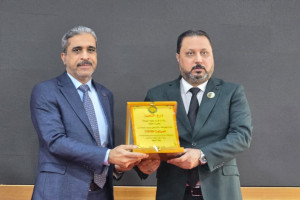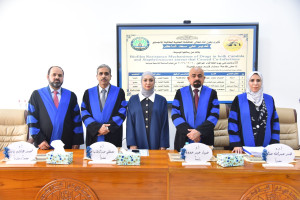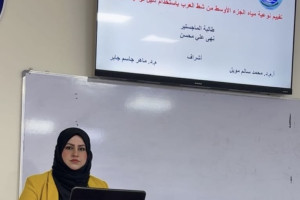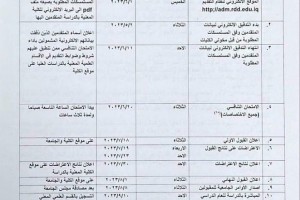
The College of Science at the University of Basrah organized a seminar entitled (Molecular investigation of CRISPR system role in some virulence factors of Escherichia coli isolated from Urinary Tract Infections)) by the graduate student Ahmed Jasim Mohammed. The study aims Detection extended spectrum β-lactamase genes type in the local E coli isolates. Detect carbapenem genes among the local E coli isolates. Determine the distribution of the CRISPR system among the local E coli isolates and included Clustered Regularly Interspaced Short Palindromic Repeats (CRISPR) CRISPR-Cas systems are found in 87% of archaeal genomes and 50% of bacterial genomes. They have a big role in self-defense mechanism, as an adaptive immune natural technique. The current study reported that most of the E. coli, isolated during this study, harbored CRISPR locus sequences (spacers and repeats) were resistance to ESBLs. It reveals a positive relationship between the spacers number and the antibiotic resistance ability, particularly against ESBL in the tested isolates, and the study was recommended adoption of polymerase chain reaction in Iraqi hospitals, specifically in Basrah province, for the identification and detection of pathogenic bacteria that produce carbapenemase and extended-spectrum β-lactamases (ESBLs). More research is required to identify the various forms of carbapenemase and extended-spectrum β-lactamases enzymes in pathogens often isolated from Iraqi patients.







